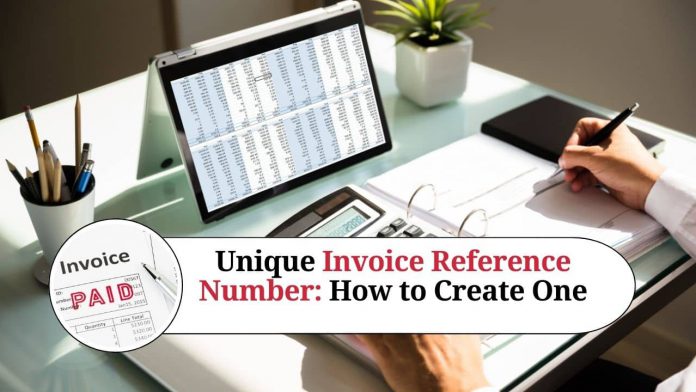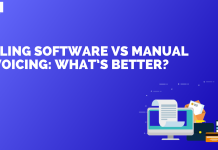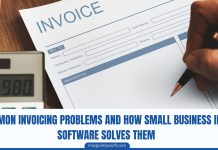Invoicing is a crucial part of any business, as it ensures that payments are made on time and helps maintain a healthy cash flow. However, without a unique invoice reference number, it can be difficult to track payments, resolve disputes, and maintain accurate financial records. In this article, we’ll explore why a unique invoice reference number is important, and provide some tips on how to create one.
Why does a Unique Invoice Reference Number Matter?
A unique invoice reference number is a specific code or combination of characters that is assigned to an invoice. It is essential because it enables a business to track and identify a particular invoice, and also helps to ensure that each invoice is accounted for. Here are some of the main reasons why a unique invoice reference number matters:
- Accuracy and organization: A unique invoice reference number helps to ensure that each invoice is accurately tracked and accounted for. Without a reference number, it can be difficult to keep track of which invoices have been paid and which ones are still outstanding. This can lead to confusion and errors in financial reporting, which can be costly and time-consuming to correct.
- Dispute resolution: Invoices can sometimes be disputed by customers, for example, if they believe that they have been overcharged or that the work or product was not delivered as expected. In such cases, a unique invoice reference number is essential for resolving the dispute quickly and efficiently. It allows both parties to refer to the invoice in question and discuss the issue in a clear and organized manner.
- Financial reporting: A unique invoice reference number is also important for financial reporting purposes. It enables a business to accurately track revenue and expenses, and also helps to identify trends in payment patterns and customer behavior. This information can be used to make informed business decisions and to plan for the future.
How to Create a Unique Invoice Reference Number?
Creating a unique invoice reference number is relatively straightforward. Here are some tips on how to do it:
- Use a consistent format: Choose a format for your invoice reference number and stick to it. For example, you could use a combination of letters and numbers, or just numbers. Make sure that the format is easy to understand and consistent across all your invoices.
- Keep it simple: Your invoice reference number should be easy to read and understand. Avoid using complex codes or abbreviations that might confuse your customers or staff.
- Make it unique: Your invoice reference number should be unique to each invoice. This can be achieved by using a sequential numbering system, where each invoice is assigned a number in the sequence.
- Include relevant information: Your invoice reference number should include relevant information, such as the date of the invoice, the customer’s name or account number, and the amount of the invoice. This will make it easier to identify the invoice and track it in your records.
- Avoid using special characters: Special characters such as commas, hyphens, and brackets can cause problems in some accounting software systems. Avoid using them in your invoice reference number to ensure compatibility with different systems.
Wrapping it Up!
Conclusion: A unique invoice reference number is a critical component of any invoicing system. It helps to ensure accuracy and organization, enables efficient dispute resolution, and provides valuable data for financial reporting purposes. By following the tips above, you can create a unique invoice reference number that is easy to understand, easy to track, and compatible with different accounting software systems. So if you haven’t already done so, now is the time to start assigning unique reference numbers to all your invoices!
Read Useful Article
- Top Benefits of E-Invoicing Software For Your Business
- E-invoicing – Guide On E-Invoicing System In India
- How to Generate Electronic Invoicing (e-Invoicing) in Marg ERP Software
Frequently Asked Questions:
Q: What is a unique invoice reference number?
A: A unique invoice reference number is a specific code or combination of characters that is assigned to an invoice to identify it uniquely.
Q: Why is a unique invoice reference number important?
A: A unique invoice reference number is essential for accurate tracking and accounting of invoices, efficient dispute resolution, and valuable financial reporting data.
Q: How do I create a unique invoice reference number?
A: You can create a unique invoice reference number by using a consistent format, keeping it simple and easy to understand, making it unique for each invoice, including relevant information such as date, customer name or account number, and invoice amount, and avoiding special characters that may cause compatibility issues.
Q: Can I use the same invoice reference number for multiple invoices?
A: No, you should not use the same invoice reference number for multiple invoices. Each invoice should have a unique reference number.
Q: What should I do if I forget to include an invoice reference number?
A: It is best practice to always include a unique invoice reference number on every invoice. If you forget to include it, you should assign a unique reference number as soon as possible and update your records accordingly.
Q: Is it possible to change an invoice reference number once it has been assigned?
A: It is not recommended to change an invoice reference number once it has been assigned, as this can lead to confusion and errors in tracking and accounting. If you need to make a change, it is best to issue a credit note or a new invoice with a new reference number.
Q: Can I use the customer’s purchase order number as the invoice reference number?
A: It is possible to use the customer’s purchase order number as the invoice reference number, but it is important to ensure that it is unique for each invoice and that it is easily identifiable in your accounting system.




















